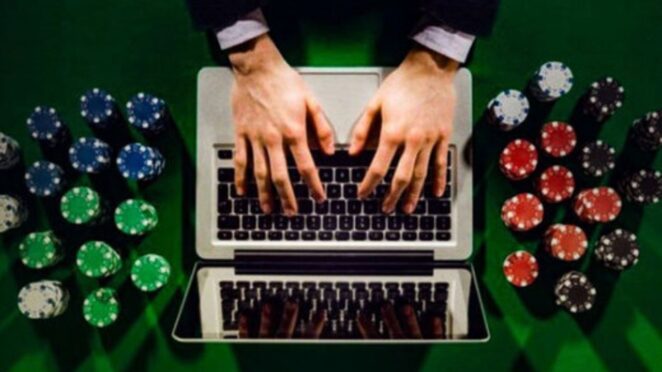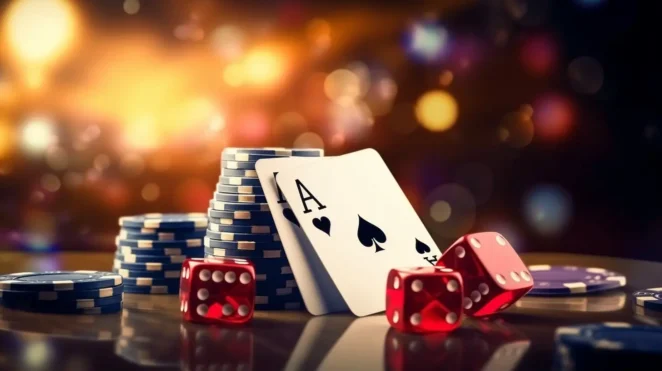It’s a paradox that puzzles many: why do individuals who are known for their intellect and reasoning skills often fall prey to the seemingly irrational world of online gambling? Smart people are not immune to the allure of gambling; in fact, their confidence in their own intelligence can sometimes be their downfall.
Despite their knowledge and analytical prowess, they may misjudge their actual control over gambling outcomes, leading to unexpected losses. From overconfidence to complex judgment errors and the psychological traps of gambling, the reasons behind this phenomenon are as intriguing as they are varied.
For those intrigued by the nuances of online gambling and looking to explore this world further, mpo slot offers a direct view into the action.
The Overconfidence Effect

One of the primary reasons intelligent people make poor gambling decisions is overconfidence. They often overestimate their knowledge or abilities, particularly in areas like gambling where chance plays a significant role. This overconfidence is not just about feeling superior; it’s about genuinely believing that they can predict or influence outcomes thanks to their intellect. Whether it’s sports betting or complex casino games, the confidence in their analysis can lead them to overlook the element of randomness inherent in gambling.
The Complexity Conundrum
Intelligent people thrive on solving complex problems. However, this strength can become a weakness in the context of gambling. The intricate nature of betting odds and gambling strategies can sometimes lead to sophisticated but ultimately flawed reasoning. The belief that one can outsmart a system designed to be random and unpredictable often leads to miscalculations and oversights, resulting in losses that they didn’t anticipate.
Social Pressures and Group Dynamics

Even the brightest minds are not immune to the influence of their social environment. In group settings, the desire to conform or impress can lead smart people to make decisions they wouldn’t normally consider if they were alone. This social pressure can magnify in gambling situations, such as poker nights with peers or casino trips with colleagues, where the stakes are not just financial but also involve personal pride and social standing.
The Intelligence Trap
There’s a phenomenon known as the “intelligence trap,” where smart individuals fall into cognitive biases more readily because they are adept at defending ideas they’ve already adopted, even if those ideas are flawed. Their ability to craft convincing arguments can trap them in poor decision-making. In gambling, this means sticking with a losing strategy because they’ve convinced themselves it should work, despite evidence to the contrary.
Wealth and Overconfidence
Wealthy individuals often carry a history of success that can reinforce overconfidence. This can be particularly true in gambling, where they feel their financial resources can buffer any potential losses. This sense of security might encourage riskier bets, under the belief that their wealth provides a safety net, allowing them to escape the usual consequences of poor gambling decisions.
The Thrill of the Gamble

Beyond cognitive biases and social influences, gambling offers a fundamental thrill that can be hard to resist, regardless of intelligence or wealth. The psychological stimulation from risking something of value on an uncertain outcome releases dopamine, creating a high that can be addictive. This is often intensified in smart or wealthy individuals who are used to stimulation and challenges, making gambling an attractive activity despite its risks.
Here are some intriguing real-life examples and facts that illustrate why even smart people can make poor decisions when it comes to gambling, highlighting the complex interplay of psychology, chance, and intelligence:
- Nobel Prize Winners’ Hedge Fund Collapse: Two Nobel laureates in economics disastrously misjudged financial risks with their hedge fund, demonstrating that high intelligence does not safeguard against poor gambling decisions.
- MIT Blackjack Team: Brilliant college students won millions from casinos using math, but their success led to significant personal and legal issues, showing the risky side of even the most calculated gambling strategies.
- Terrance Watanabe’s Massive Losses: A successful businessman lost $127 million in a year of gambling in Las Vegas, underscoring how even seasoned entrepreneurs can fall victim to the gambling thrill.
- Lottery Participation Across Socioeconomic Levels: Highly educated and affluent individuals often participate in lotteries despite the low odds, highlighting the universal appeal of gambling’s potential high rewards.
- Ben Affleck’s Blackjack Incident: Despite his strategic aptitude in card counting, Ben Affleck was banned from blackjack at a major casino, illustrating the challenges even skilled gamblers face against casino controls.
Conclusion

Understanding why smart people make dumb bets in online gambling involves recognizing the complex interplay of overconfidence, cognitive biases, social dynamics, and the inherent allure of risk-taking. These factors often overshadow logical assessments and lead even the most rational minds to make seemingly illogical decisions. The irony of online gambling is that it demonstrates how vulnerability to poor decisions is a universal human trait, affecting even those who are otherwise highly rational.
Real-life examples vividly illustrate these points: Nobel laureates disastrously misjudged financial risks, MIT students faced legal troubles despite their successful strategies, and a businessman lost millions in Las Vegas, showcasing how deep the gambling allure can go. Even participation in lotteries by educated individuals and Ben Affleck’s ban from blackjack highlights the widespread and indiscriminate nature of gambling’s appeal.
By acknowledging these influences, we can better comprehend the sometimes irrational nature of human behavior and the powerful draw of gambling that transcends socioeconomic status and intellectual capabilities. Recognizing and addressing these tendencies can lead to healthier gambling habits and better decision-making overall, providing deeper insights into the nuances of human rationality and irrationality.




